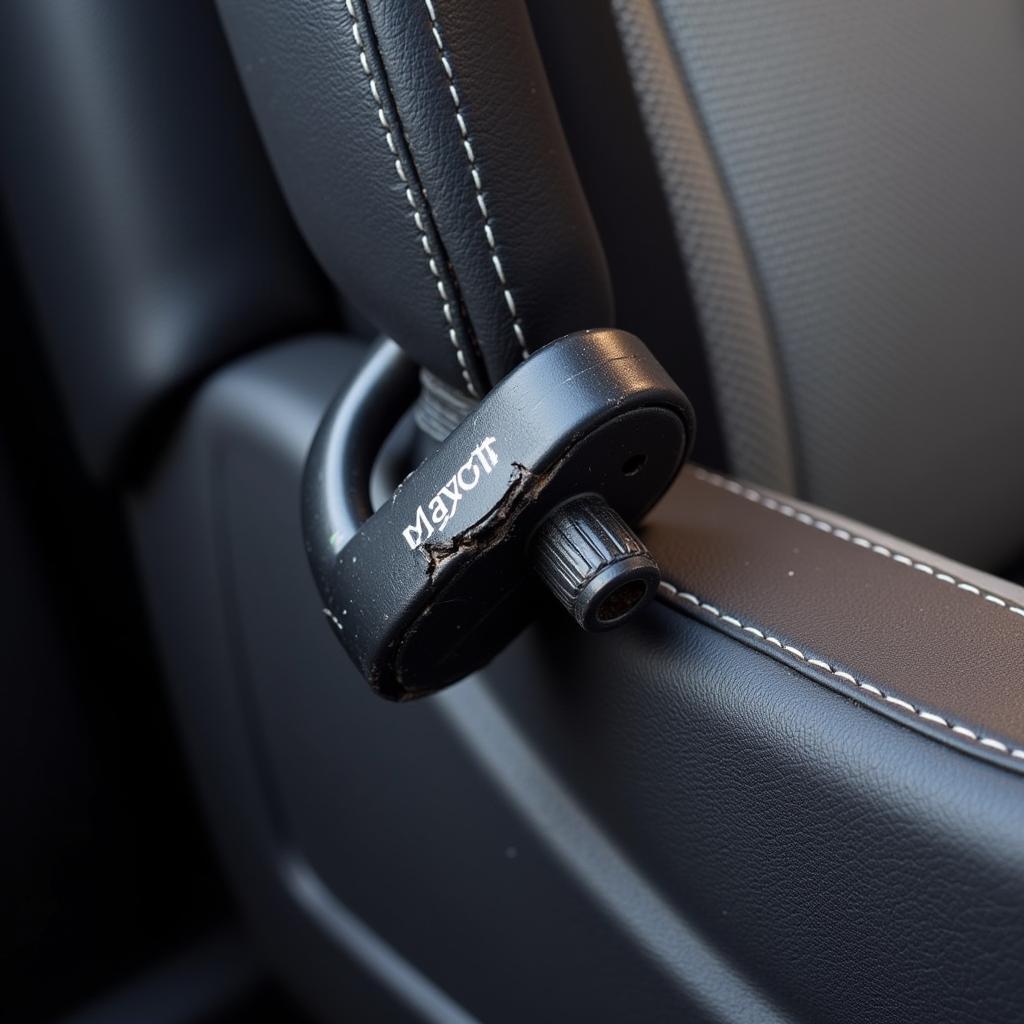The brake warning light on your BMW E46 can be a cause for concern, but it doesn’t always signify a serious issue. This light can illuminate for various reasons, from a simple issue like a low brake fluid level to a more complex problem with the brake system. This article will guide you through the steps on how to reset the brake warning light on your BMW E46, providing you with valuable information and potential solutions.
Understanding the Brake Warning Light
The brake warning light is designed to alert you to potential problems within your braking system. It’s important to address this warning light promptly, as ignoring it could lead to more significant issues and even compromise your safety.
Before attempting to reset the light, it’s essential to identify the underlying cause. Some common reasons for the brake warning light to come on include:
- Low Brake Fluid: This is the most common reason for the brake warning light to illuminate. Check your brake fluid reservoir and top it off if necessary.
- Faulty Brake Pad Sensor: Your brake pads have wear sensors that trigger the warning light when the pads reach a critical wear level. You may need to replace the brake pads.
- Faulty ABS Sensor: The Anti-lock Braking System (ABS) uses sensors to monitor wheel speed. A faulty sensor can trigger the brake warning light.
- Electrical Issues: A malfunctioning electrical component within the braking system could also cause the warning light to illuminate.
Resetting the Brake Warning Light
Once you’ve addressed the underlying cause of the brake warning light, you can try resetting it. Here’s how:
- Turn the ignition to the “ON” position without starting the engine.
- Press the brake pedal firmly for about 5-10 seconds.
- Release the brake pedal and turn the ignition to the “OFF” position.
- Repeat steps 1-3 two or three times.
- Start the engine and check if the brake warning light has been reset.
Important Note: If the brake warning light continues to illuminate after trying these steps, it’s crucial to have your BMW E46 inspected by a qualified mechanic. Ignoring the warning light can lead to dangerous consequences.
Common Brake Warning Light Issues on BMW E46
The brake warning light on a BMW E46 can sometimes be triggered by less common issues. Here are some additional problems that might cause the light to come on:
Brake Pad Sensor Malfunction
Parking Brake Fault
Electronic Stability Control (DSC) Issues
Expert Insights:
“Many times, the brake warning light on a BMW E46 is triggered by something as simple as low brake fluid. Checking the fluid level is the first step. If the fluid is low, it’s important to address the source of the leak.” – John Smith, Automotive Technician
“While you can reset the brake warning light yourself, it’s always best to have a mechanic diagnose the underlying cause. This will ensure that the issue is addressed properly and prevent future complications.” – Jane Doe, BMW Specialist
Frequently Asked Questions:
Q: How often should I check my brake fluid level?
A: It’s recommended to check your brake fluid level at least once a month, and more frequently if you notice any changes in braking performance.
Q: Can I safely drive with the brake warning light on?
A: It’s not recommended to drive with the brake warning light on. The warning light indicates a potential problem with your braking system, and driving with a compromised brake system can be dangerous.
Q: What are the signs of a faulty brake pad sensor?
A: A faulty brake pad sensor may cause the warning light to illuminate, even if the brake pads are still within acceptable wear limits. You may also hear a grinding or squealing noise when you apply the brakes.
Q: Can I reset the brake warning light myself?
A: You can try to reset the brake warning light yourself using the steps outlined above. However, if the light persists, it’s important to have your vehicle inspected by a qualified mechanic.
Conclusion
The brake warning light on your BMW E46 serves as a vital indicator of potential braking system problems. By understanding the common causes and troubleshooting steps, you can take proactive measures to address the issue and ensure the safety of yourself and others on the road. If you have any doubts or if the problem persists, always seek professional assistance from a qualified BMW technician.


